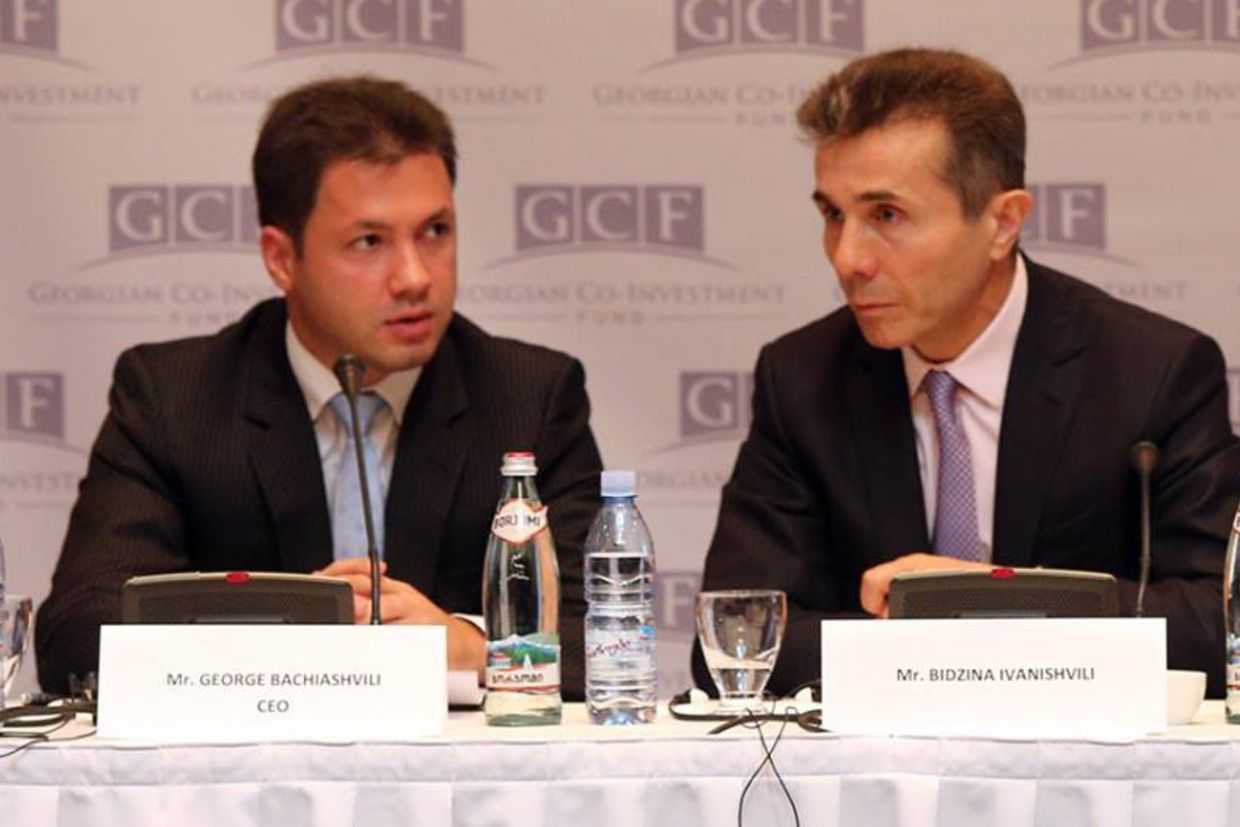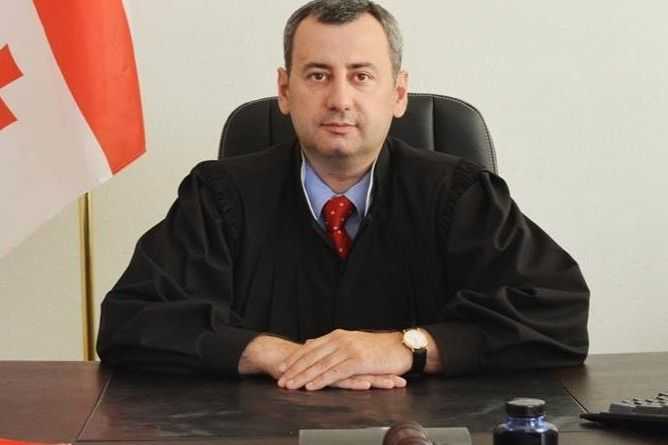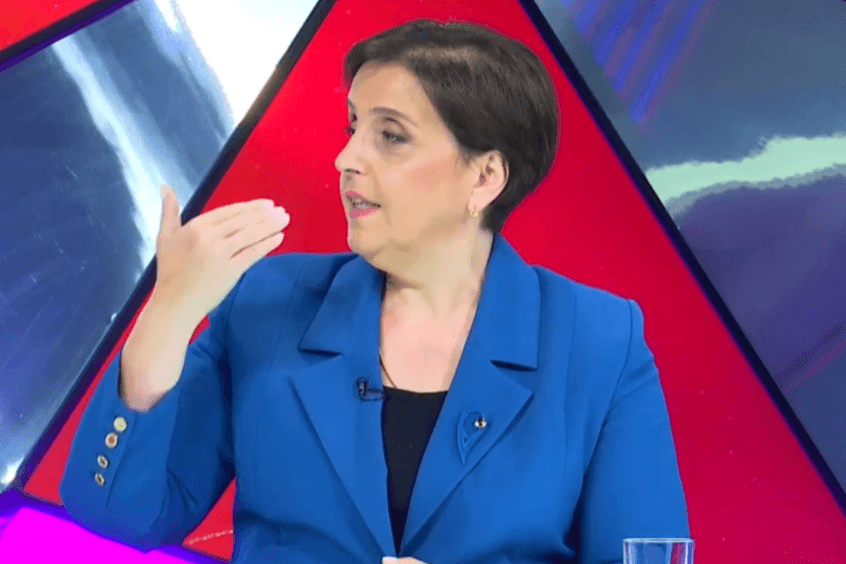
Georgian social media has been flooded with posts from protesters reporting having received hefty fines of ₾5,000 ($1,800) for ‘blocking roads’ during protests.
On Thursday, activist Nancy Woland (who also goes by the Kristina Botkoveli), the co-founder of Daitove, a popular activist group on Facebook and a regular participant in the almost daily pro-EU protests in Georgia, said that she was received two separate fines within a single week for allegedly blocking roads during protests on 26 January and 3 February — with both fines totalling to ₾10,000 ($3,500).
‘The court hearing for the second fine hasn’t taken place yet, but I have no hope’, Woland told OC Media, indicating that she believed the court will uphold the second fine as well.
Woland’s home was searched on 1 February, a day before a mass protest was planned to block one of Tbilisi’s main entrances. She reported that, during the search, female police officers ordered her to strip completely. She also said that the police took her personal equipment and physically assaulted her mother.

The ruling Georgian Dream party increased the administrative fine for blocking a street from ₾500 ($180) to ₾5,000 ($1,800) in December 2024.
When justifying the fines, police often argue that the number of demonstrators attending a protest was insufficient to warrant a road closure.
Many fined individuals, including Woland, have pointed out that when they arrived at the protests for which they had been fined, the road, usually Rustaveli Avenue, would have been already closed due to the presence of a large number of protesters.
Protests in Georgia have been ongoing since November 2024 against the government’s policies and its decision to ‘halt’ Georgia’s EU membership bid until 2028. This wave of protests is part of an ongoing political crisis in Georgia which followed the 2024 parliamentary elections whose official results gave Georgian Dream 54% of the vote.
Protests traditionally take place on Rustaveli Avenue in front of parliament in central Tbilisi.
Other protesters who had been fined have also said that they were fined for blocking Rustaveli Avenue while it had already been blocked.
‘After [Rustaveli Avenue] was closed and more people gathered on the road, I walked [on it] for about five minutes and then went home’, said Tinatin Shkubuliani, another protester who was also fined ₾5,000 ($1,800).
Shkubuliani mentioned that she has videos showing police officers leaving the area as soon as the street was blocked by protesters, without issuing any warnings about potential legal violations.
According to Shkubuliani, police later told her that street cameras had recorded her involvement in ‘road blocking’. The Georgian Young Lawyers’ Association (GYLA) has also mentioned in its statement that police actively use facial recognition cameras to identify demonstrators.
As of 7 February, GYLA reported that the total sum of fines imposed on protesters had exceeded ₾600,000 ($212,000). In some cases, police notify individuals of these fines by phone, while in others, officers deliver the fines directly to their homes.
For many, paying these steep fines presents severe financial challenges. According to the news agency BMG, citing data from the Revenue Service, of the 1,230,881 people who earned income from various sources in December 2024, only 15% earned ₾4,800 ($1,700) or more.
‘The fine is so large that paying it under the current circumstances is simply unimaginable’, said Shkubuliani, who teaches children with special needs at two different schools. Her monthly salary is nowhere near ₾5,000.
During the protests, several funds were established to help demonstrators pay their fines. While many people turn to these funds for assistance, lawyers urge citizens to first challenge the penalties at the Interior Ministry and in court rather than paying them immediately.
‘Appealing these fines is crucial for our struggle’, Saba Brachveli, a lawyer at the Open Society Foundation, told OC Media.
According to Brachveli, filing appeals serves two important purposes: it lays the groundwork for potential cases at the European Court of Human Rights, and it also places additional strain on the police and court resources, slowing down the process of issuing further fines.
‘By filing appeals, we [also] help others who are out there protesting every day’, Brachveli added.
On 6 February, disputed President Mikheil Kavelashvili signed the legislative changes passed by Georgian Dream that critics described as restricting freedom of expression and assembly.
One of the changes permitted police to issue fines for blocking streets without first seeking court approval. Now, the burden of legally challenging the fine falls entirely on the citizen.











